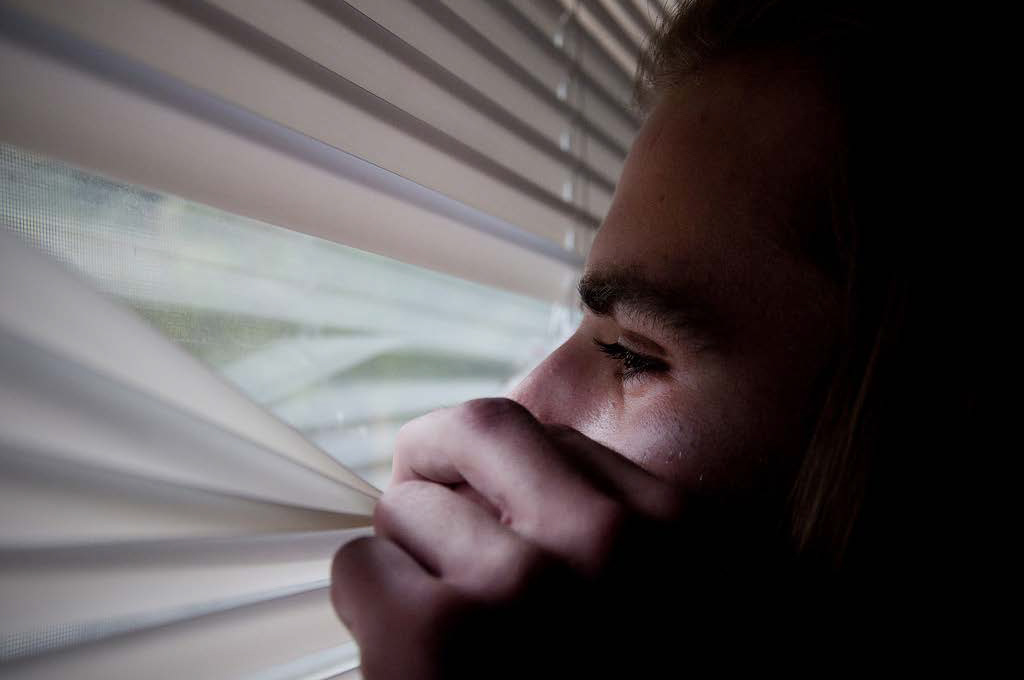Suffering Social Anxiety

Cheyanne Young, an associate general studies student, suffers from social anxiety depression. For as long as she remembers, she has seen counselors and tried countless medications, none of which worked for her.
“Social anxiety is not something you can control. It’s not a choice,” she says. Social anxiety is an inconvenient disorder in many situations in life, but for a student it can be especially difficult. “Sometimes when I need to ask a teacher for help, I wait until the last minute. I get so nervous that when I ask my question sometimes I stutter, or I worry that I will be a burden. In some cases, it has hurt my grade because I have waited too long to ask for help. I also worry that the teachers think I am not trying because it looks like I am not participating,” Young says.
For Young, things have gotten a little easier as time has gone by, and she has learned different tools to help manage her anxiety. Young explains that she has never really had any bad vibes at UCC. “People are more mature here. The teachers are nice, so it has made approaching them a lot easier,” Young says.

Young is not alone. About 15 million American adults have social anxiety disorder, but studies show about a third of these people wait 10 or more years before seeking help, according to the Anxiety and Depression Association of America. The disorder often starts during the middle school years.
Social interaction is not only expected but also required in school where being judged and criticized by others is routine. The struggle to cope with social situations and feedback can result in both psychological trauma and an endangerment of future success for students with social anxiety.
“I get so nervous that when I ask my question sometimes I stutter or worry that I will be a burden.” — Cheyanne Young
These students suffer through experiences such as sitting in their cars before class telling themselves, “It’s going to be okay, you can do it” or “it’s okay if you miss class today, we’re not doing anything important, and I don’t look good.” They pray they won’t say something stupid in class and there will be no attention drawn to them.
These students fear situations weeks before they actually happen. Concerns such as finding classes, getting books, worrying if they know anyone in class or if they will fit in or if the instructor will be too hard are often enough to cause a breakdown.

Instead of judging the girl who sits in the back of class and never looks up, teachers and fellow students can make the classroom a good environment for someone with social anxiety disorder. Knowing that these students are struggling is the first step to help structure the classroom and encouraging the student is key. Psychologist Arlin Cuncic suggests a structured environment where the person with social anxiety is encouraged for small successes. She warns about enabling the person, speaking for them or doing their work.
Social anxiety, as well as other factors, can lead to depression. About 30 percent of college students reported feeling “so depressed that it was difficult to function” at some time in the past year, according to the American College Health Association–National College Health Assessment. Whether the source of the depression is social anxiety or anything else, academic success can suffer. Students with depression are more likely to smoke and use drugs or alcohol. Self-medication can cause further harm, so students are recommended to seek help.
Young is currently dealing with her anxiety by putting her feelings and emotions on paper in her journaling.
UCC has a counseling center and will help any student receive help or referrals needed for further counseling. Sue Windsor, counselor and associate professor, is available at 541-440-4611. Danielle Haskett , coordinator of Disability Services is available at 541-440-7655, and private appointments can be set up through http://www.umpqua.edu/counseling-services.


